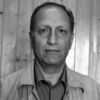Amid Article 35A row, NC to boycott J&K local polls

Srinagar: In a significant development, Jammu and Kashmir’s oldest political party, the National Conference, has announced it will not contest the coming rural and urban bodies elections until the Centre clarifies its position vis-à-vis Article 35A of the Constitution. It also said the situation was not conducive for holding these elections in the state as of now.
NC president Farooq Abdullah, addressing a press conference here on Wednesday, said the decision to stay away from the panchayat and municipal elections due to take place in eight phases from October 1 this year was taken at a meeting of the NC’s high-powered core group held earlier in the day. The party’s chief spokesman and former minister Aga Ruhullah Mehdi simultaneously wrote on Twitter: “The National Conference will not participate in the panchayat and ULB elections unless and until the GOI clears its position with regard to Art 35A. And takes effective steps to safeguard it inside and outside the courts.”
Minutes after NC president Farooq Abdullah made the announcement, the party’s arch-rival People’s Democratic Party expressed the hope that the newly-appointed governor, Satya Pal Malik, would convene an all-party meeting to discuss the matter further.
NC vice-president and former CM Omar Abdullah said: “It is now for the Central government to clarify where it stands with regard to Article 35A. It’s not enough to use panchayat and municipal elections simply to delay proceedings in court.”
The Supreme Court had on August 31 deferred the hearing on petitions challenging the constitutional validity of Article 35A after its three-member bench headed by Chief Justice Dipak Misra was informed by attorney-general K.K. Venugopal and additional solicitor-general Tushar Mehta, representing the Centre and J&K government respectively, that in view of the impending eight-phased local body elections and law and order situation in the state, the hearing be deferred.
Article 35A guarantees special rights and privileges to permanent residents of Jammu and Kashmir and thereby prohibiting non-permanent residents from permanent settlement and from acquiring immovable properties, government jobs and scholarships in the state. The provision also empowers the state legislature to define such “permanent residents” and provide special rights and privileges to those permanent residents.
However, a petition seeking removal of Article 35A is currently pending before a three-judge Supreme Court bench. An NGO, “We the Citizens”, believed to be an RSS think tank, challenged Article 35A in 2014 on the grounds that it was not added to the Constitution through an amendment under Article 368 and it was never presented before Parliament, and came into effect immediately.
It is learnt that the dominant view at the deliberations at the NC core group meeting was that because of the “extreme hostility” of vast sections of the people towards mainstream parties in Kashmir, particularly its southern parts, and the overall law and order situation in the Valley, the atmosphere was not at all favourable for holding rural or urban bodies’ polls. Some participants questioned the wisdom of the government behind its decision to hold these elections when it had not been able to give its go-ahead to the Election Commission to conduct the bypoll for the Anantnag Lok Sabha seat for the past two years citing the law and order situation in the Valley.
Kashmir watchers said the NC decision not to contest the overdue panchayat and municipal elections was a major setback to the proposed democratic exercise. Also, some other mainstream parties and groups may also follow suit, they said.

